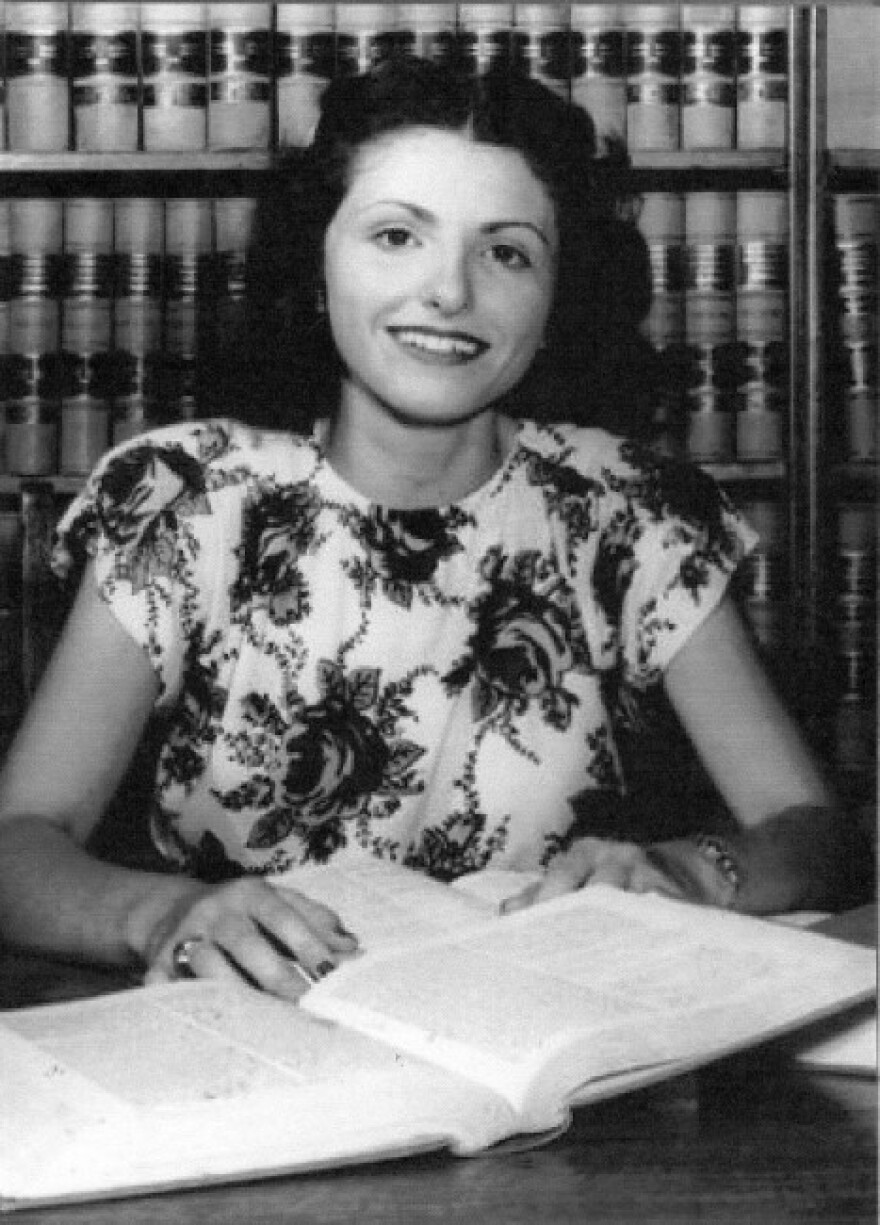When Grace Day enrolled in law school in 1948, it didn't occur to her she was doing anything unusual.
"I just thought, gosh you just enroll and you go," says Day, who is now 88. "If people were going to be resentful about women going into a professional school, it never dawned on me."
Until she got there.
Day's story as a law-school pioneer is documented in Amazing Grace, one of three previews this week for Kansas City's Jewish Film Festival. (The previews will have to suffice, for now, because the festival itself, originally scheduled for later this month, has been postponed until January and February so as not to compete with Royals playoff games, according to festival organizers.)
"It's an incredible story of perseverance," says Heather McMichael, a former television news anchor and reporter who produced the 30-minute documentary. McMichael and photographer Jon Haiduk spent two years following Day and conducting interviews for the film.
Day grew up in northwest Iowa and went to college at the University of South Dakota. A good student who had enjoyed her time on the college debate team, Day had no problem getting accepted to law school.
"When I got in there, I soon discovered it was a different world and the men thought it was their profession," says Day. Not only was she the only woman, she was just 19.
"Most of the fellows in law school are a little bit older, and some had been through the service. They were really trying to torment me, embarrass me, do pranks and tricks thinking I was going to quit and be out of there," she says.
"At first I thought it was a little bit peculiar they were doing these things. Then I realized what was happening."
Day made up her mind: She wouldn't be humiliated into leaving.
"It was a lonely experience in some ways," she says. "I did have a small group of guys at the beginning who really befriended me and tried to keep me away from those who were trying to harass me. They wanted to report them to the dean, but I wouldn’t let them. I told them, 'Don’t worry about it.'"
The law school experience prepped her for what awaited her in the professional world.
"When I got out, nobody wanted me whatsoever," she says. "One law firm told me, 'Our clients would never accept a woman being part of our firm.'"

Day and her husband moved to his hometown of St. Joseph, where he got a teaching job.
After repeated rejections from law firms, Day finally started her own practice.
"When I signed a lease and rented an office, I didn’t have a client. I was newly married and didn’t have any money at the beginning. I represented mostly women because men weren’t going to go to a woman lawyer."
Thanks to her female clientele, she became an expert in family law.
"When you look back, it's really horrible to think about how women were treated," Day says. "They didn’t have hardly any rights. When they got a divorce, the property and bank accounts were in the husband’s name."
Judges preferred that women kept custody of young children, she notes, "but when it came to any kind of division of assets, there wasn’t any. All they were left with was kids and a little bit of child support."
And it wasn't just men who doubted her choice of profession.
"A lot of women were resentful of women being in careers and working," Day says. "They believed women should be home taking care of children. I can remember some of my very good friends thought, 'What in the world is she doing, leaving those children, going to work and practicing law?'"
Obviously, attitudes began to change. And by the time her own daughter went to law school, Day says, "it was 50-50 in her class."
Day's son went to law school, too. And in a textbook case of historic irony, when he applied there was a preference for women and minorities.
"The white males were having a difficult time getting in," Day says.
She worked until she was well into her 80s before retiring a couple of years ago.
"It was a long period of time," Day says, "but didn’t seem like that long. It went pretty rapidly."
Amazing Gracepremieres Wednesday, Oct.7, 7 p.m. at the White Theatre on the campus of the Jewish Community Center of Greater Kansas City, 5801 W. 115th Street, Overland Park, Kansas, followed by a question and answer session with Grace Day and the filmmakers.
C.J. Janovy is an arts reporter for KCUR. Follow her on Twitter at @cjjanovy.





